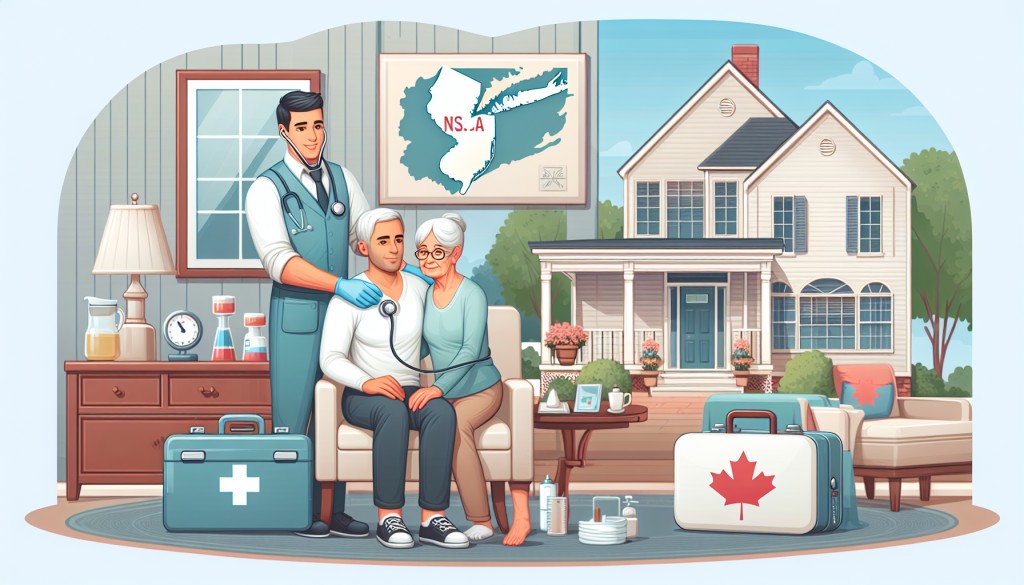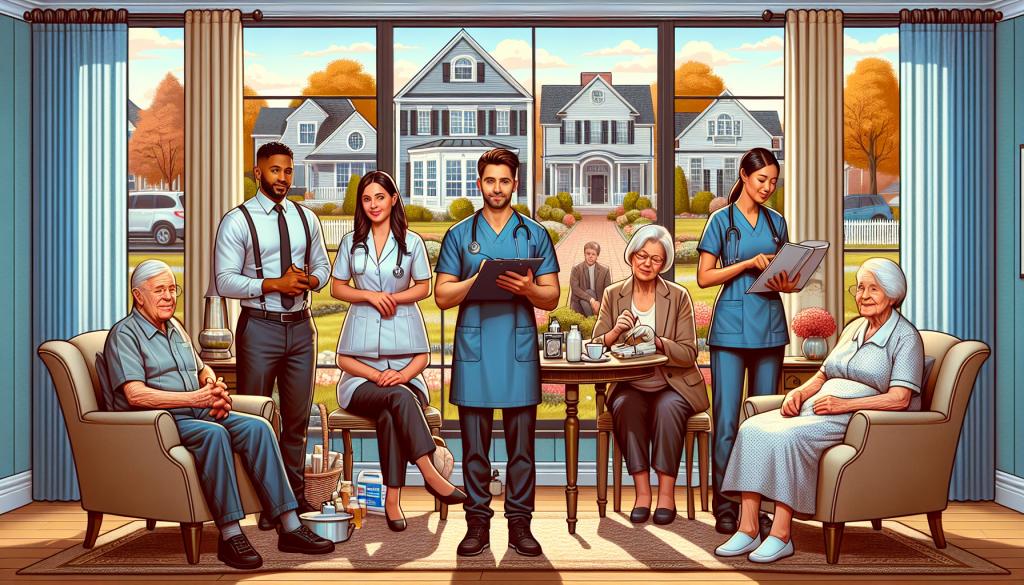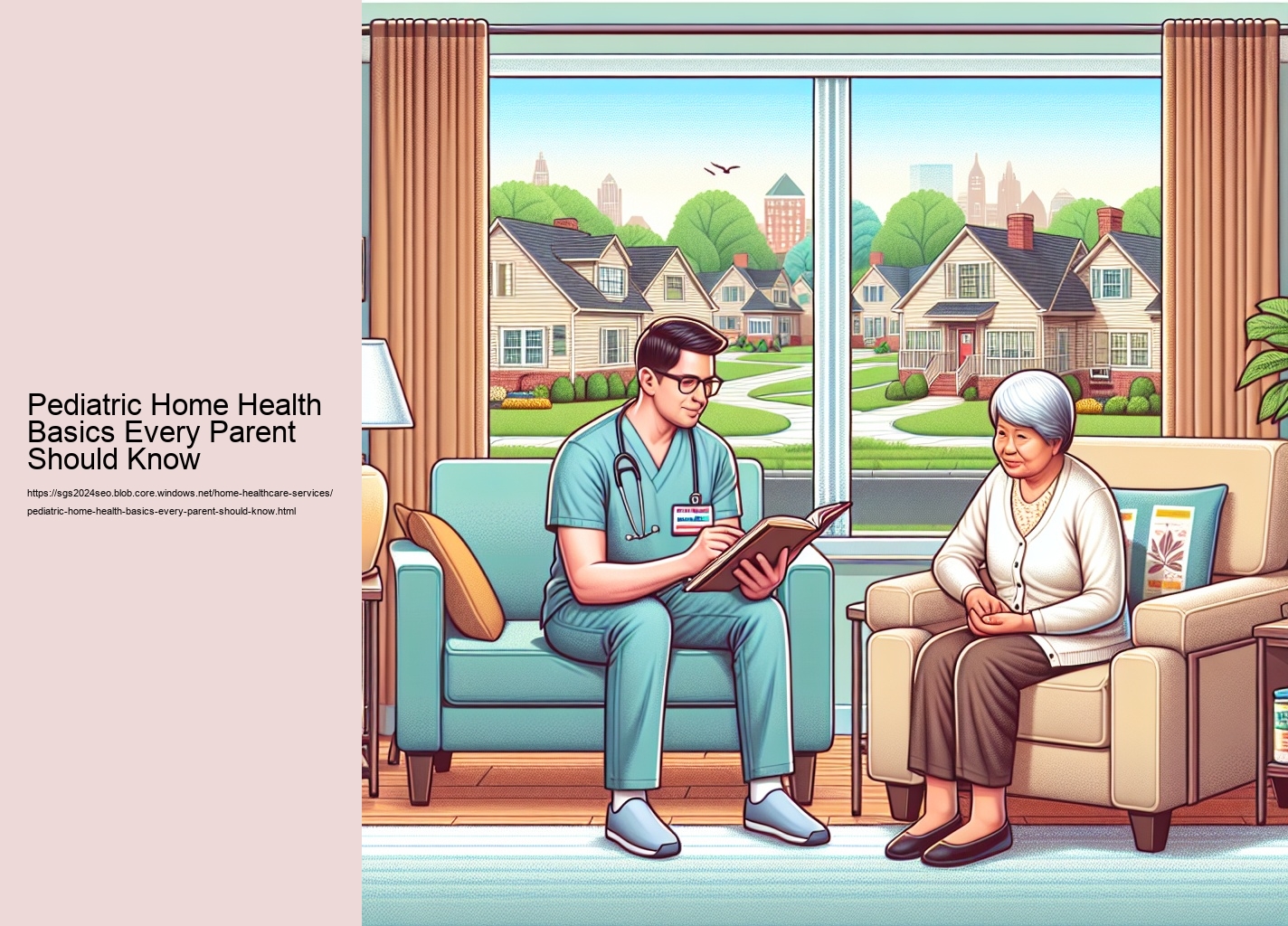Verify Licensing, Certification, and Quality Ratings
Before you sign with any home doctor in 2025, treat licensing, accreditation, and quality scores as non‑negotiables. 2025 Home Care Wage Hikes: What Families Should Expect . Beginning with the essentials: verify the firm is properly licensed in your state for the exact services you require. "Home health" (proficient nursing, therapy, wound care) is regulated differently from "home treatment" or "individual care" (showering, dressing, companionship). Use your state health division or expert licensing board's online data source to confirm the firm permit is energetic and in good standing, and that it covers the best solution group. If the agency will bill Medicare, verify it is Medicare‑certified; you can cross‑check this on Medicare's Treatment Contrast website.
Accreditation isn't the like a certificate, but it indicates the agency has fulfilled higher standards and goes through regular outside evaluation. Look for valued accrediting bodies such as The Joint Payment, LAD, or ACHC. Request an existing certification certification and the day of the last study. For non‑medical home care, certification is volunteer; if a company isn't certified, they need to have the ability to clarify exactly how they keep top quality and oversight in its lack.
Do a deeper credential check on individuals who will be in your home. Registered nurses, accredited practical nurses, physical and physical therapists, and social employees all have specific licenses you can confirm with state boards. Home health assistants need to satisfy state training needs. It's practical to ask the agency to confirm that all team have actually passed background checks, are not on the federal OIG Exclusions List, and lug proper expert responsibility and employees' payment coverage. Demand proof of the company's general liability insurance; many families likewise ask for a certification of insurance coverage upon having.
Usage unbiased high quality scores to contrast companies, not just reviews. On Medicare Treatment Compare, examine the celebrity rankings and dig into specific steps like prompt initiation of care, rehospitalization rates, enhancement in movement and self‑care, and patient experience scores from HHCAHPS surveys. In 2025, Home Health and wellness Value‑Based Buying applies nationwide, so ask the agency to share its most recent efficiency or result reports and what it is doing to enhance. For Medicaid home- and community‑based solutions, check your state's company directory for top quality signs, critical event reports, and EVV (electronic browse through confirmation) compliance data. Online evaluations can be interesting however must not override official top quality data and regulatory records.
Demand transparency. Ask the firm for its latest state survey results and strategy of improvement, any kind of CMS permissions or charges, and exactly how grievances are handled. In an age of telehealth and remote monitoring, inquire about gadget security and personal privacy methods, HIPAA compliance, and whether any digital devices they use are FDA‑cleared where applicable. If the firm asserts healthcare facility or doctor partnerships, verify exactly how they share details, especially if they incorporate with your medical professional's record system.
Warning consist of evasive responses concerning licensing or survey background, ended certification, missing evidence of insurance coverage, unusually high team turn over without any explanation, or high quality ratings well below regional averages. A trusted company will certainly welcome these questions, give paperwork quickly, and help you translate ratings in the context of your requirements. Validating qualifications and top quality up front requires time, but it is one of the most trusted method to safeguard risk-free, reliable care at home.

Analyze Telehealth, Remote Surveillance, and Information Safety and security
Examine Telehealth, Remote Monitoring, and Data Security
In 2025, choosing a home doctor means looking beyond bedside skills to the digital foundation that sustains your treatment. Telehealth, remote client monitoring, and data safety currently establish how hassle-free, risk-free, and linked your treatment will be.
Beginning with telehealth. Video clip brows through should feel as trustworthy as an office consultation. Ask exactly how simple it is to timetable, whether you can see the very same clinician for connection, and what happens if the link goes down. Seek attributes like e-prescribing, secure messaging, after-visit recaps, and language accessibility such as interpreters or inscriptions. Confirm the system deals with your devices, supports availability needs, and offers technology help for seniors or caregivers. Equally as vital is integration: does the telehealth platform talk to your existing medical records so your health care clinician sees updates? If treatment crosses state lines, verify licensure and whether your insurer covers the services you prepare to use.
Remote tracking can change daily life for individuals managing chronic conditions, recovering after surgical procedure, or requiring security checks. Concentrate on medical value and functional reliability. Which problems do they keep track of and with what tools? Are the tools FDA-cleared and verified for home usage? That watches the information, exactly how commonly, and what are the response times for unusual analyses at night or on weekend breaks? Ask just how sharp limits are set to limit false alarms and how commonly those limits are examined. Check whether gadgets are loaned or bought, who manages arrangement, training, and replacement, and what cellular or Wi‑Fi connection is called for. Interoperability still matters right here as well: will your data flow into your wellness document, and can you see it in a person application?

Information security need to never ever be a second thought. A provider's case of "HIPAA certified" is a baseline, not a differentiator. Seek independent audits or certifications (for example, SOC 2 Type II, HITRUST, or ISO 27001), encryption of data en route and at rest, multi-factor verification, and role-based access with audit logs. Ask about incident reaction and breach notification procedures, exactly how commonly they run protection drills, and their strategy to ransomware strength and back-ups. For home devices, verify that data is secured on the gadget and during transmission, software program is maintained to day, and shed or stolen devices can be remotely wiped. Clarify that possesses your data, the length of time it's preserved, exactly how to ask for deletion, and whether de-identified information is made use of for analytics or shown 3rd parties. Ensure a Company Partner Arrangement exists in between the modern technology suppliers and the treatment provider, and that frontline staff are learnt personal privacy methods, consisting of getting authorization for any type of recording.
Finally, check out the human side of the technology. Will they aid establish your Wi‑Fi or offer cellular packages if you do not have broadband? Do they offer clear instructions, large-print products, multilingual support, and caretaker training? Is there 24/7 tech support and a simple method to intensify scientific problems?
In a marketplace crowded with applications and gadgets, the very best home health care services in 2025 mix high-quality medical treatment with reputable virtual accessibility, actionable tracking, and rigorous protection of your information. Pick the group that clarifies their technology simply, shows their safeguards, and makes it very easy for you and your household to make use of.
Evaluate Treatment Plans, Staffing, and Caretaker Fit
Picking home health care in 2025 methods looking beyond a shiny brochure. The appropriate companion will show you a clear treatment plan, trusted staffing, and a caregiver that truly fits your liked one's needs and individuality. Start with the care strategy. Ask exactly how the company assesses requirements and sets goals: not just detects, however practical capabilities, drugs, drop danger, cognitive assistance, nutrition, loneliness, transport, and caregiver break. A solid plan is written by or under the supervision of a signed up nurse or therapist, with quantifiable outcomes (for example, fewer drops, boosted movement, medication adherence) and a timetable for evaluation-- frequently every 30 to 60 days or after any modification in condition. In 2025, numerous companies make use of remote client surveillance and telehealth; make certain the plan discusses what devices are used, that examines the information, and just how information is shown to your medical professional. Interoperability and personal privacy issue-- ask whether their systems attach to your doctor's electronic records, just how data is secured, and that can see updates.

Staffing is where assures satisfy fact. Make clear whether caregivers are W‑2 employees or 1099 professionals; staff members normally have stronger oversight, training, and insurance policy coverage. Validate credentials (CNA, HHA, LVN/LPN, REGISTERED NURSE), background checks, driving documents if transport is consisted of, booster shots, MOUTH-TO-MOUTH RESUSCITATION, and any type of specialized training like dementia or Parkinson's treatment. Request for their turn over price, average caretaker period, and fill price for changes-- numbers that expose stability. Connection is essential: will you have a main caretaker with a little backup swimming pool, or see frequent turnings? What is the backup plan for sick days, no-shows, tornados, or public wellness informs? In a tight labor market, agencies that pay relatively and use benefits tend to keep personnel better-- do not be reluctant to ask how they sustain caregiver well‑being and avoid fatigue.
Caregiver fit goes beyond schedule. Share candid information about regimens, language preferences, social or spiritual practices, pet comfort, cigarette smoking level of sensitivities, songs or food preferences, and individuality design. An excellent firm will certainly utilize structured matching-- abilities, language, cultural expertise, sex choice, driving capacity, and physical capacity for transfers or equipment-- to recommend a caretaker and set up a meet‑and‑greet. Many will allow you attempt a brief test shift before devoting. Observe chemistry: Does the caregiver listen, make eye call, and ask thoughtful concerns? Do they value limits while being aggressive? If your liked one has mental deterioration, try to find perseverance, redirection skills, and a tranquility, comforting presence.
Communication should be basic and regular. Ask to see the family website or app if one exists: Can you check out visit notes, jobs finished, vitals, and messages? How rapidly does the workplace respond, and what is the acceleration path after hours? That is your called care manager, and just how frequently will they visit personally to manage treatment? In 2025, many states require digital visit confirmation-- confirm that clock‑in/ out protects you from payment for missed out on time, which your information is not utilized for anything else without consent.
Quality and liability are nonnegotiable. Try to find accreditation (Joint Payment, CHAP, or ACHC) and state licensure. Ask about customer complete satisfaction scores, grievance resolution time, occurrence prices (falls, hospitalizations), and any value‑based programs they join. Ask for 2 recent client recommendations with similar needs. Testimonial agreement details very carefully: minimum hours, cancellation terms, replacement guarantees, and what occurs if the caregiver isn't a fit. If you're making use of Medicare for skilled home health, clarify what is covered and for for how long; for exclusive duty treatment, inquire about long‑term treatment insurance coverage, Medicaid waivers, VA benefits, and whether the firm can aid with documents.
Practical safety inquiries complete the photo. Just how do they evaluate the home for hazards and suggest devices? Do they train caretakers on secure transfers and infection control? What is the policy on video cameras in the home? If the caregiver will certainly drive your loved one, confirm insurance policy coverage and lorry standards.
Red flags include unclear or cookie‑cutter care strategies, no RN oversight, high turnover, regular last‑minute timetable adjustments, unwillingness to share outcome information, pushy sales tactics, or resistance to a meet‑and‑greet. Thumbs-up consist of clear reporting, predictable staffing with back-ups, respectful matching, and a clear prepare for constant enhancement.
In the long run, the right choice feels both expert and individual. You need to see a strategy you can understand, a team you can get to, and a caregiver your enjoyed one anticipates seeing. If any kind of item doesn't feel right, keep looking-- fit, in home care, is every little thing.
Contrast Prices, Insurance Coverage Protection, and Agreement Terms
Contrasting pricing, insurance policy protection, and agreement terms is where most households either save thousands-- or face unpleasant surprises-- when selecting home healthcare solutions in 2025. Treat this like you would certainly any type of significant acquisition: need clearness, validate advantages in writing, and read the fine print with a calm, doubtful eye.
Begin with prices. Ask each supplier for an itemized quote that matches your actual care strategy: number of hours per week, level of caregiver (aide vs. LPN/RN), and any type of specialized requirements such as dementia care, injury treatment, or post-surgical support. In 2025 you'll see several models-- hourly rates, visit-based costs, live-in rates, and bundled "crossbreed" strategies combining in-person care with telehealth and remote monitoring. Contrast apples to apples by consisting of add-ons: minimum-hour needs, overtime limits, weekend break and holiday premiums, traveling or parking fees, nurse supervision or treatment monitoring charges, technology or gadget leasing, and fees for immediate organizing. Ask how typically rates can change, whether there's a price-lock period, and if rises are tied to a set percent or an index. Clarify what happens when the care plan changes mid-month: do they pro-rate or re-quote? If you're considering a computer registry instead of a full-service firm, consider your duty for payroll tax obligations, employees' payment, and responsibility-- what looks less costly upfront can set you back more in threat and management.
Next off, select insurance policy protection. Know the distinction in between clinical home wellness (competent nursing, therapy, frequently covered if clinically required) and non-medical home care (aid with bathing, meals, and friendship, often not covered by standard medical insurance). For Medicare: knowledgeable home wellness can be covered when qualification criteria are satisfied, however individual care is commonly not, unless folded up right into a strategy of treatment. Medicare Benefit intends increasingly use supplemental in-home assistance, dish delivery, or remote surveillance-- advantages differ extensively by plan, call for in-network carriers, and might need previous consent or recertification, so verify limitations, copays, and visit caps prior to you start. Medicaid advantages and Home- and Community-Based Providers waivers can be charitable but differ by state and handled care plan; waitlists and carrier networks matter. Long-term care insurance policy can fund substantial hours as soon as profit triggers are fulfilled (normally requiring aid with two or even more activities of daily living or cognitive disability), yet view removal durations, everyday or regular monthly caps, and life time optimums. Veterans may get approved for Help and Participation or Homemaker/Home Wellness Aide solutions through the VA. Ask if the company will certainly validate benefits, handle consents, and expense directly, and whether they'll proceed treatment if authorizations lapse. If you intend to self-pay, inquire about price cuts for longer schedules, autopay, or bundled programs. HSAs and FSAs can commonly be made use of for clinically necessary solutions; for tax obligation deductions or credit scores, consult a tax professional.
Currently, the contract terms-- the part many people skim and later on remorse. Try to find:
- Discontinuation and notification: Can you stop or terminate without penalties? Are there minimums or early discontinuation fees?
- Auto-renewal and rate adjustments: Exactly how are boosts communicated and topped?
- Staffing and alternatives: Exactly how quickly do they replace a caregiver who's unwell or not a fit? Exists a test period or complete satisfaction guarantee?
- Non-solicitation and buy-out: If you intend to hire a caretaker straight later, what cost uses?
- Worker standing and insurance: Are caretakers W-2 employees covered by workers' compensation and responsibility insurance coverage? Ask for evidence.
- Range of method: What jobs can aides legitimately perform in your state (drug management, transfers, catheter care)? That supervises and exactly how often?
- Documents and transparency: Will you have access to electronic browse through logs, care notes, and reassessments? Who updates the care strategy and exactly how regularly?
- Payment cycle and conflicts: Deposits, late charges, refunds for extra hours, rounding guidelines for change start/stop times, and the procedure for contesting a bill.
- Safety and privacy: Event reporting, infection control, background checks, driving policies, and data personal privacy for any kind of remote monitoring devices.
- Disagreement resolution: Arbitration conditions, location, and your civil liberties under state customer laws.
Do a basic "true expense" contrast across finalists: predicted regular hours x price + all anticipated costs-- confirmed insurance compensation. Then layer in non-financial worth: responsiveness, back-up protection, supervisory top quality, and outcome monitoring. In 2025, trusted firms can reveal top quality metrics and may take part in value-based programs-- ask for their a hospital stay decrease rates or customer contentment ratings.
Prior to signing, obtain every assurance in creating, consisting of begin date, caregiver certifications, and the specific services covered. If the contract really feels dense or one-sided, have actually a trusted advisor or lawyer review it. The most effective deal is not just the most affordable price-- it's the arrangement that supplies risk-free, trusted care with foreseeable expenses and no surprises.
